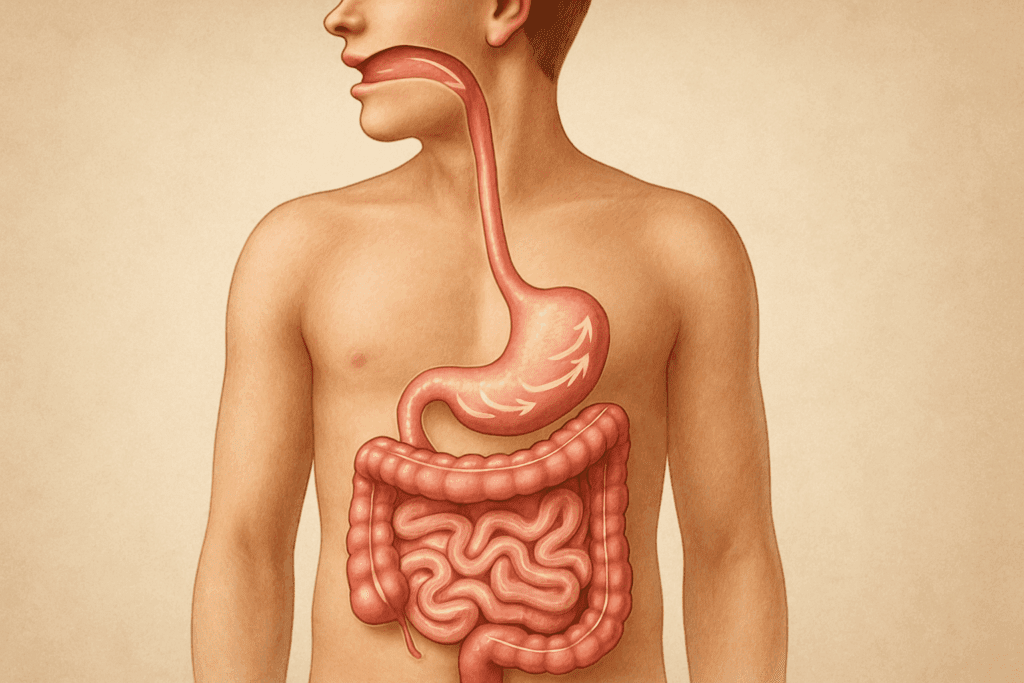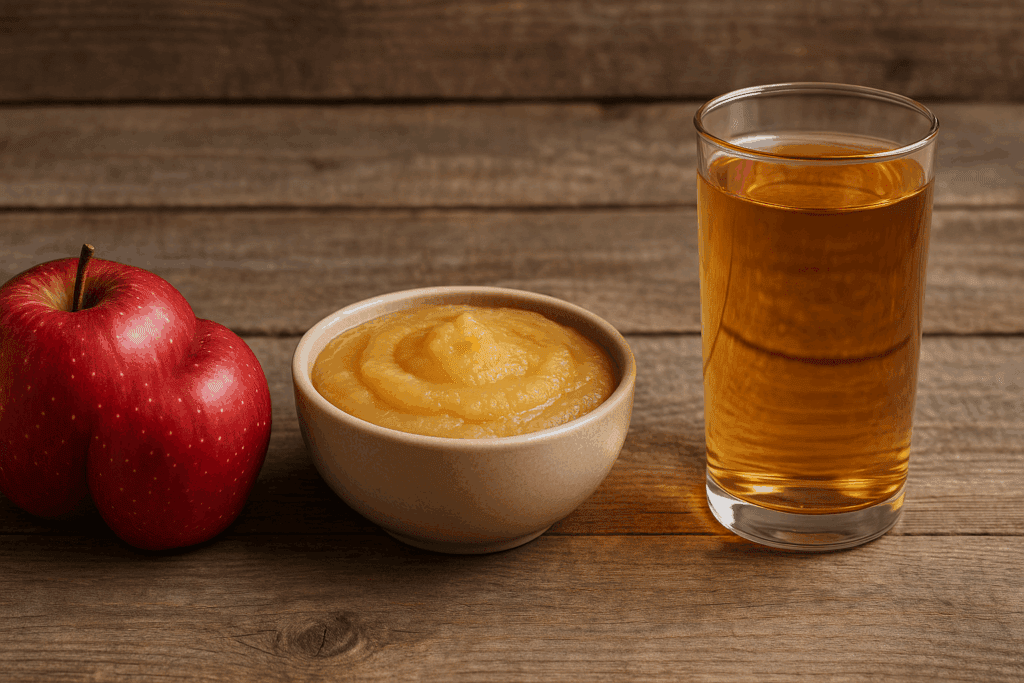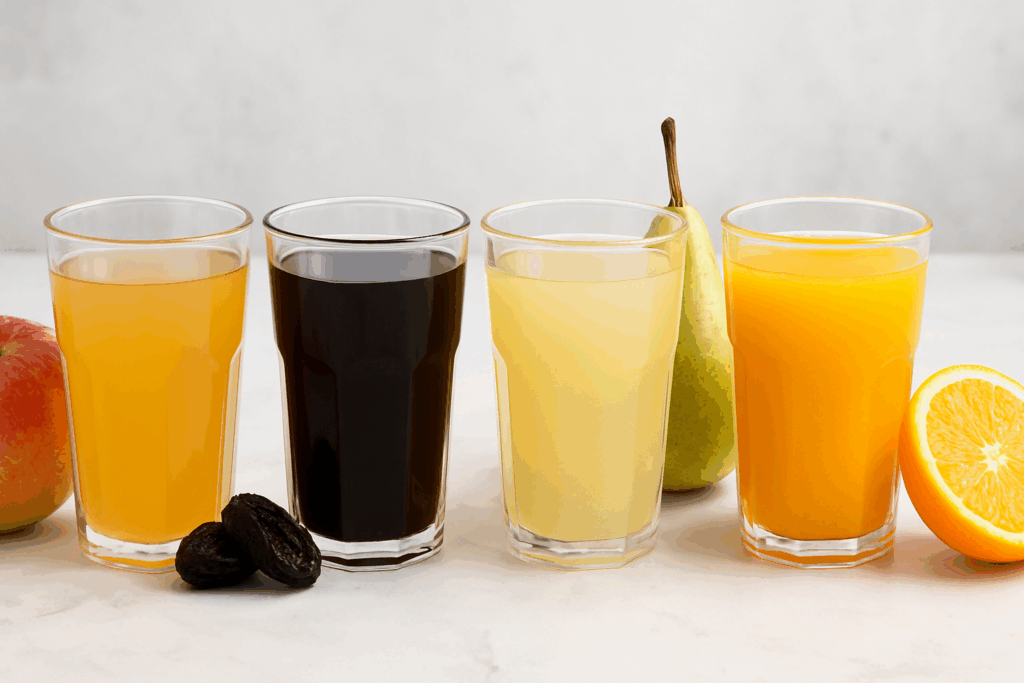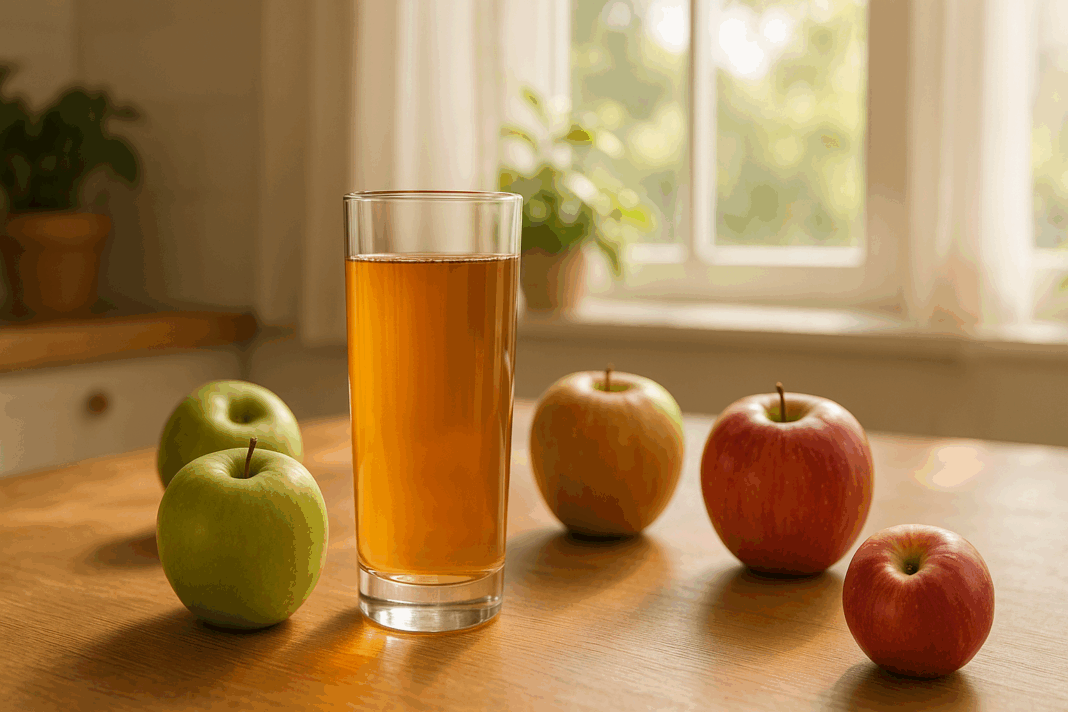Constipation is a common digestive concern that affects millions of people globally, often prompting a search for natural, gentle remedies that don’t require synthetic laxatives. Among these natural options, apple juice is frequently discussed, especially in relation to digestive regularity. The relationship between apple juice and constipation is of particular interest not only to those pursuing gut health but also to individuals who prefer holistic approaches to wellness. In this article, we will explore whether apple juice is truly an effective solution, how it compares to other natural remedies, and what science says about its role in promoting digestive health.
You may also like: The Ultimate Guide to Gut Healthy Meals: Best Meals for Gut Health and Nourishing Recipes You’ll Love

Understanding the Digestive Process and How It Affects Bowel Movements
To fully appreciate the potential impact of apple juice on constipation, it’s essential to first understand how the digestive system functions. Digestion begins in the mouth, where enzymes start breaking down food, and continues through the stomach and intestines, where nutrients are absorbed and waste is eventually expelled. A healthy digestive process relies on factors like sufficient hydration, fiber intake, microbial balance in the gut, and proper gastrointestinal motility.
When any part of this process is disrupted, constipation can occur. This may mean infrequent bowel movements, difficulty passing stool, or hard, dry stools that are painful to expel. Certain foods and beverages can play an important role in alleviating these symptoms, either by stimulating peristalsis (the wave-like contractions that move food through the intestines) or by softening the stool to make passage easier. Apple juice is often recommended as one of those potential remedies.
Apple Juice and Constipation: What Makes It Work?
The connection between apple juice and constipation stems largely from its natural sugar and fiber content, particularly fructose and sorbitol. Sorbitol is a type of sugar alcohol that acts as an osmotic laxative by drawing water into the intestines. This increase in water can soften the stool and stimulate bowel movements. Many commercial laxatives actually use synthetic versions of this mechanism, which makes apple juice a more holistic and less abrasive alternative.
In addition to sorbitol, apple juice contains fructose, a simple sugar that is only partially absorbed by the small intestine. When fructose reaches the colon, it can have a laxative effect similar to that of sorbitol. However, excessive consumption may lead to bloating or discomfort in sensitive individuals. The natural acidity of apple juice may also help stimulate digestive enzymes, further encouraging bowel movement.

The Surprising Benefits of Apple Juice Beyond Sorbitol
While sorbitol is the star of the show, apple juice offers other properties that make it beneficial for digestive health. For instance, it contains phytonutrients and antioxidants that support gut lining integrity and reduce inflammation, which can be a contributing factor in chronic constipation. Additionally, apple juice offers hydration, which is a key factor in keeping the digestive system running smoothly.
Fiber is another important consideration. Though apple juice is relatively low in fiber compared to whole apples or applesauce, it can still be part of a fiber-friendly diet when consumed in moderation. Incorporating apple juice into a balanced eating plan that includes whole fruits and vegetables may enhance its effectiveness in relieving constipation.
Does Apple Juice Make You Poop? The Science Behind the Question
When people ask, “Does apple juice make you poop?” they’re usually looking for a simple yes or no answer. The reality is more nuanced. Research has demonstrated that both apple juice and prune juice can be effective in managing mild constipation in children and adults. However, the degree to which apple juice works depends on factors such as age, hydration status, dietary habits, and individual tolerance to fructose and sorbitol.
For some, especially young children and the elderly, apple juice can act quickly and efficiently. For others, especially those with conditions like irritable bowel syndrome (IBS), the high fructose content may cause gas or discomfort. Nevertheless, the question of whether apple juice and constipation are meaningfully linked is largely answered with a cautious yes, provided it is consumed in appropriate quantities and as part of a broader strategy for digestive health.

How Does Apple Juice Compare to Whole Apples and Applesauce?
When evaluating the best form of apple-based remedy for constipation, it’s important to consider how apple juice and constipation compare to the effects of whole apples and applesauce. Whole apples are rich in both soluble and insoluble fiber. Soluble fiber, such as pectin, absorbs water and forms a gel-like substance that helps soften stool. Insoluble fiber adds bulk, which helps speed up the passage of waste through the digestive tract.
Applesauce, though cooked, retains some of the pectin found in whole apples and is often considered easier to digest, making it a good choice for children or those with sensitive stomachs. Does applesauce help with constipation? The answer is generally yes, especially if the applesauce is unsweetened and retains much of the fruit’s natural fiber.
In contrast, apple juice contains little to no fiber due to the juicing process. Yet, its higher levels of fructose and sorbitol offer their own digestive benefits. In essence, each form has its advantages, and the choice between whole apples, applesauce, or apple juice may depend on the individual’s digestive sensitivity, dietary restrictions, and personal preference.
Will Apple Juice Help With Constipation in All Age Groups?
The question of whether apple juice and constipation are connected across different demographics is worth examining. For infants and toddlers, pediatricians often recommend a small amount of apple juice to alleviate mild constipation. This approach leverages the gentle laxative effect of sorbitol without resorting to harsher medications. In adults, especially those who are otherwise healthy, apple juice may be effective when paired with other lifestyle changes such as increased fiber and water intake.
Among the elderly, constipation is a common issue due to slower gastrointestinal motility and decreased physical activity. Apple juice can be a useful tool in these cases, but care must be taken to avoid overconsumption, which may lead to elevated blood sugar levels or gastrointestinal discomfort. For each group, moderation and balance are key. Understanding personal tolerance to ingredients like sorbitol and fructose will help tailor the use of apple juice as a supportive remedy.

Do Apples Help With Constipation More Than Apple Juice?
The debate about whether do apples help with constipation more effectively than juice is rooted in the distinction between fiber content and osmotic effect. Apples, especially when eaten raw and with the skin, are high in dietary fiber, which is essential for maintaining bowel regularity. Fiber not only adds bulk to the stool but also facilitates its movement through the colon.
Apple juice, by contrast, lacks the same fiber content but provides hydration and sugars that help stimulate bowel movements. From a holistic perspective, the ideal approach might involve a combination of both. A fiber-rich diet that includes apples, supplemented with occasional servings of apple juice, could offer a more comprehensive digestive benefit than either option alone.
Exploring the Best Juice for Constipation Relief
While the relationship between apple juice and constipation is well supported by anecdotal and clinical evidence, it’s worth comparing it to other juices commonly used for constipation relief. Prune juice is often considered the gold standard because it contains both sorbitol and fiber. Pear juice, similarly, has a high sorbitol content and is frequently recommended for infants.
Grapefruit juice and orange juice also contain natural sugars and mild laxative effects, though they are more acidic and may not be suitable for all individuals. Ultimately, the best juice for constipation may vary based on individual digestive sensitivity, but apple juice remains a strong contender due to its gentle action and palatable taste.

Is Apple Juice Good for Constipation When Paired With a Holistic Diet?
A truly holistic approach to digestive health involves more than just adding one beverage to your diet. It means examining the overall dietary pattern and ensuring it supports gut function on multiple levels. So, is apple juice good for constipation in this context? The answer is a qualified yes.
When consumed as part of a diet rich in whole grains, fruits, vegetables, and fermented foods, apple juice can provide an extra boost in maintaining regularity. The hydrating properties of apple juice complement the bulking action of fiber-rich foods, while the natural sugars enhance intestinal motility. Combined with probiotic-rich foods that balance the gut microbiome, apple juice becomes a useful addition rather than a standalone solution.
Addressing the Myth: Do Apples Cause Constipation?
Among the many questions surrounding apple juice and constipation is the counterclaim: do apples cause constipation in some people? While apples are generally recognized for their digestive benefits, certain individuals may experience bloating or discomfort due to the presence of fermentable carbohydrates known as FODMAPs. These compounds can be problematic for people with IBS or similar sensitivities.
That said, apples typically relieve rather than cause constipation for the general population. Cooking apples or choosing applesauce over raw apples may alleviate any discomfort. As always, it’s important to listen to your body’s signals and adjust dietary choices accordingly.
Drinks That Make You Poop: Where Apple Juice Fits In
There are many drinks that make you poop, and apple juice consistently ranks among the most popular and effective. Beyond the apple, beverages such as prune juice, warm water with lemon, and even herbal teas like senna or peppermint have reputations for supporting bowel regularity. Apple juice’s combination of hydration, natural sugars, and mild acidity places it firmly in this group.
However, it’s essential to distinguish between short-term relief and long-term digestive health. While apple juice can certainly assist in relieving occasional constipation, it should be viewed as part of a broader strategy that includes adequate water intake, physical activity, and a balanced diet.
The Role of Applesauce in Constipation Relief
Much like juice, applesauce constipation remedies are common, especially for young children and the elderly. Applesauce retains some fiber and pectin, which are valuable for softening stool and improving gut motility. Does applesauce help with constipation as effectively as juice? In some cases, it may work even better, particularly when fiber is the key missing element in the diet.
For best results, it’s important to choose unsweetened, unprocessed applesauce, which maintains a higher concentration of natural fibers and fewer additives. Is applesauce good for constipation on its own? Absolutely—and it can also be combined with oatmeal, yogurt, or flaxseed to further enhance its digestive benefits.
Foods to Bulk Up Stool: Apples as Part of the Solution
When it comes to foods to bulk up stool, apples, along with other fiber-rich fruits and vegetables, play a critical role. Bulky stools move more efficiently through the intestines and are easier to pass, reducing the likelihood of straining or developing hemorrhoids. The pectin found in apples is particularly useful in this regard.
Adding apples, applesauce, or apple juice to a diet that includes whole grains, legumes, and leafy greens can help achieve the desired stool consistency. These are also foods that add bulk to stool, promoting a more complete evacuation and reducing the sensation of incomplete elimination.
The Verdict: Can Apple Juice Help With Constipation Naturally?
After considering the evidence and examining how apple juice and constipation are interlinked, it becomes clear that apple juice is indeed a natural remedy with potential benefits. Its sorbitol and fructose content, combined with hydrating properties and mild digestive stimulation, make it a useful tool for alleviating occasional constipation.
Still, it should not be used in isolation or as a cure-all. Incorporating apple juice into a fiber-rich, probiotic-friendly diet will yield better, more sustainable results. Whether through apples, juice, or applesauce, the key is to remain mindful of balance, portion size, and personal tolerance.
Frequently Asked Questions: Apple Juice and Constipation
Can drinking apple juice daily maintain long-term digestive balance?
While apple juice can support occasional constipation relief, using it daily as a long-term digestive solution may not be ideal for everyone. Its natural sorbitol and fructose content can help stimulate bowel movements, but regular consumption could lead to excessive sugar intake, especially if the juice is not fresh or contains added sweeteners. For individuals prone to blood sugar fluctuations or insulin resistance, daily apple juice could pose challenges. To maintain long-term digestive balance, it’s better to incorporate a range of juice for constipation options and prioritize whole-food sources of fiber. Rotating between apple juice and other drinks that make you poop such as pear or prune juice may prevent dependency and improve gut diversity.
How does the effect of apple juice on constipation compare to that of fermented juices?
Fermented juices, such as kefir-based or probiotic-enriched drinks, offer additional benefits over standard apple juice due to their microbial content. These drinks populate the gut with beneficial bacteria that can support motility, whereas apple juice and constipation remedies primarily rely on osmotic laxation through sugars like sorbitol. While apple juice may prompt more immediate bowel relief, fermented juices contribute to a healthier microbiome, which in turn promotes regular bowel habits over time. For individuals struggling with chronic issues, alternating between juice for constipation and fermented options could yield complementary effects. This is particularly helpful for those who do not respond well to high-sugar juices but still seek gentle digestive support.
What time of day is best for drinking apple juice for constipation relief?
Timing matters when using apple juice and constipation remedies strategically. Drinking apple juice on an empty stomach in the morning may lead to more noticeable results due to enhanced gastrointestinal responsiveness. The natural sugars in the juice can stimulate peristalsis more effectively when there are fewer digestive contents present. For others, consuming it before bedtime may result in a bowel movement the following morning, as nighttime gut activity slows but remains responsive to osmotic shifts. Testing different times while observing how your body reacts can help determine the best schedule to enhance regularity. Always pair the juice with water throughout the day to reinforce hydration.
Can apple juice help manage constipation related to travel or jet lag?
Travel-induced constipation is a common issue, often triggered by dehydration, irregular meals, and changes in routine. In these situations, will drinking apple juice help constipation during travel? Yes, it can serve as a practical tool when used mindfully. Apple juice can promote hydration and provide a mild laxative effect through sorbitol, making it useful during flights or hotel stays where dietary fiber is limited. Choosing shelf-stable, organic apple juice in single-serve containers ensures convenience and cleanliness while on the go. Pairing it with foods that add bulk to stool, such as bananas or granola, can offer a holistic defense against travel-related digestive disruptions.
Is apple juice effective for constipation in people with sensitive digestion?
People with sensitive guts or IBS may wonder whether does apple juice make you poop or just cause bloating. While the sorbitol in apple juice does encourage bowel movement, it can also ferment in the colon, potentially leading to gas and discomfort. In such cases, smaller servings diluted with water may reduce the likelihood of bloating while still supporting mild laxation. Additionally, opting for low-FODMAP juices or using apple juice in conjunction with applesauce constipation strategies can provide balance. For sensitive individuals, exploring do pears make you poop alternatives may yield similar relief with less gastrointestinal side effects due to different sugar profiles.
How does applesauce compare to apple juice in preventing constipation relapse?
Once relief from constipation is achieved, preventing relapse becomes important. Does applesauce help with constipation over the long term? Compared to juice, applesauce contains more dietary fiber, especially if it includes the skin. This fiber helps maintain stool bulk and moisture, reducing the chances of re-experiencing constipation. Unlike juice, which primarily draws water into the colon for temporary effect, applesauce provides structural support to stool formation. Including applesauce constipation options in daily meals can establish a more stable digestive rhythm, especially when used alongside foods to bulk up stool like legumes and whole grains.
Can combining apple juice with fiber supplements enhance results?
Pairing apple juice and constipation protocols with fiber supplements can enhance the overall effect but should be done strategically. Soluble fibers like psyllium or inulin can absorb water and swell, potentially improving stool consistency. When consumed with apple juice, which stimulates intestinal water flow, the two can work synergistically to ease passage. However, if taken without enough hydration, fiber supplements can worsen constipation. It’s crucial to drink additional water alongside the apple juice-fiber combo to prevent this issue and avoid interactions with medications that require a clear digestive window.
Do apples help with constipation better when eaten raw or cooked?
The question of do apples help with constipation often invites exploration into preparation methods. Raw apples contain both insoluble and soluble fiber, which are key for stimulating gut motility and adding stool bulk. However, for some, raw apple skins can be tough to digest, leading to gas or discomfort. Cooking apples, such as in stews or homemade applesauce, breaks down tough fibers and makes the fruit easier to digest without sacrificing pectin content. If someone is dealing with sensitive digestion or recovering from illness, cooked apples may offer a gentler alternative to raw while still addressing do apples help you poop concerns.
Can drinking multiple types of fruit juice prevent over-reliance on apple juice?
Overusing a single juice for constipation may reduce its effectiveness over time or create sugar imbalance. Including a variety of best fruit juice for constipation options such as prune, pear, and even kiwi juice can diversify the effects and improve gut responsiveness. Different fruits contain different types and ratios of sugars and acids, stimulating the bowel through various pathways. For example, does applesauce make you poop because of fiber, whereas prune juice relies on phenolic compounds and sorbitol. This variety supports a more resilient gut and prevents tolerance buildup. As a rotating practice, alternating juices week to week may yield more consistent results.
Could long-term use of apple juice contribute to irregular bowel function?
Although apple juice offers short-term relief, extended reliance can disrupt the body’s natural regulatory mechanisms. When used too frequently, the gut may adapt to expect osmotic stimulation from sorbitol, weakening its innate peristalsis response. This could lead to rebound constipation if the juice is suddenly removed. Furthermore, the sugar load may alter the gut microbiome, especially if not balanced with foods to bulk up stool like oats and vegetables. Ensuring that do apples make you poop naturally through whole food intake remains part of the dietary strategy is crucial for preventing laxative dependency. A measured approach ensures that can apple juice help with constipation without creating new digestive issues down the line.
Conclusion: Why Apple Juice May Be a Gentle Yet Powerful Ally for Constipation Relief
In the ever-expanding landscape of holistic health and natural remedies, few options are as accessible and gentle as apple juice. Its ability to support digestion and provide mild relief from constipation makes it a valuable addition to the toolkit of anyone seeking natural wellness strategies. While not as fiber-rich as whole apples or as potent as prune juice, apple juice offers a palatable, hydrating, and scientifically supported approach to easing digestive discomfort.
Understanding the link between apple juice and constipation encourages us to look at food not just as fuel, but as a dynamic force for healing and balance. By embracing apple juice as part of a larger gut-health regimen that includes fiber, hydration, and probiotics, we can take meaningful steps toward improving not only our digestive function but our overall sense of wellness.
Further Reading:
Which Juices Can Help Relieve Constipation?
Foods that Relieve Constipation: Help Get Things Flowing Again

